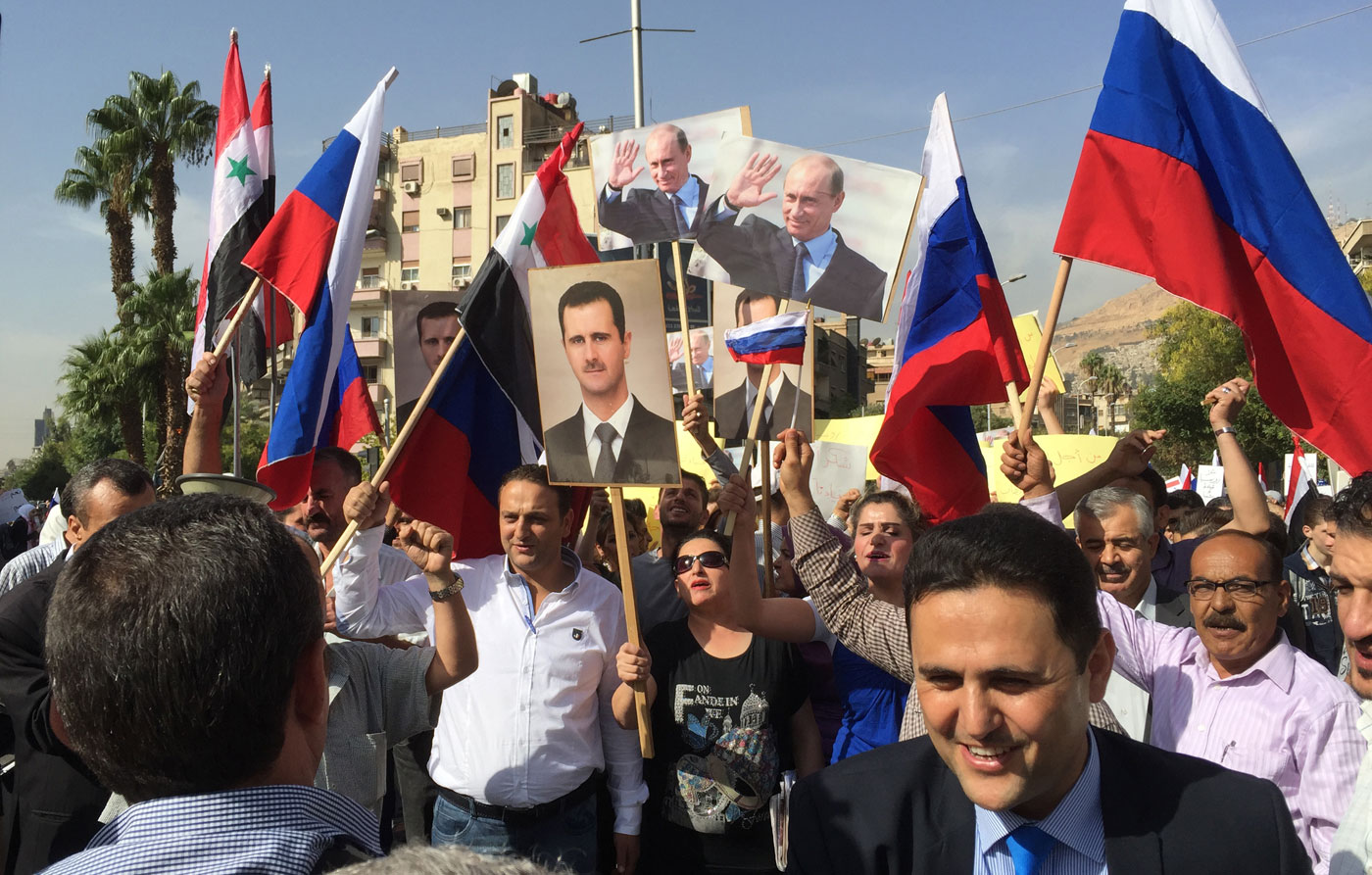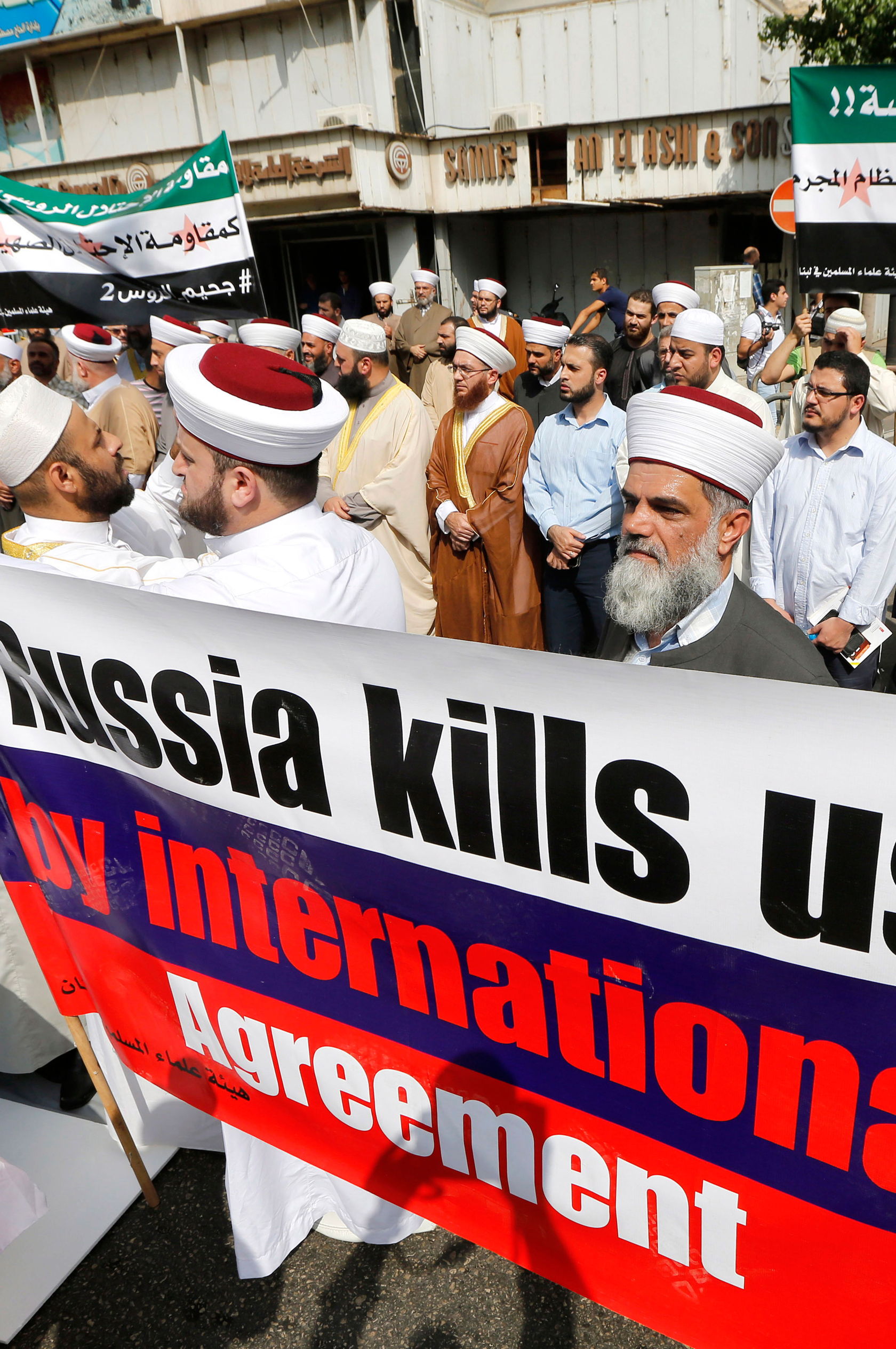Russian operation is not only part of efforts to fight terrorism and come to Bashar al-Assad's rescue, but represents an evolution of Russia's foreign policy to the next level.
RIAC debates
Russia in Syria
2 experts
-----------------
2 opinions
-----------------
2 opinions

Gevorg Mirzayan
Correspondent, Expert magazine, Research fellow of the RAS U.S. and Canadian Studies Institute, RIAC expert
Correspondent, Expert magazine, Research fellow of the RAS U.S. and Canadian Studies Institute, RIAC expert

Vasily Kuznetsov
PhD in History, Director, Center for Arab and Islamic Studies, Institute of Oriental Studies at the Russian Academy of Sciences, RIAC expert
PhD in History, Director, Center for Arab and Islamic Studies, Institute of Oriental Studies at the Russian Academy of Sciences, RIAC expert

Gevorg Mirzayan
Research fellow of the RAS U.S. and Canadian Studies Institute, RIAC expert
|
According to official statements, Russia deployed its Airborne Forces to support Bashar al-Assad in order to combat the ISIS terrorist group. Western leaders have subtly hinted that Moscow's goal is to save al-Assad and protect its interests in Syria. The Ukrainian elite and its supporters in the US and Europe are convinced that Putin has started a war in Syria to distract international attention from his "aggression" in Ukraine. In fact, the Russian operation is not only part of efforts to fight terrorism and come to Bashar al-Assad's rescue, but represents an evolution of Russia's foreign policy to the next level. Moscow clearly understands why it has arrived Syria at this particular time. Timing is another reason for success. Vladimir Putin appeared before the world as the deliverer of the region from the planetary evil that the Americans did not want to or could not defeat, rather than an oppressor of the Syrian freedom fighters. The Americans are criticizing Russia for its operations in Syria, but this criticism has more to do with the domestic political atmosphere (differences between the White House and the Congress) and with issues of image. The West needed a victory, since another military defeat in the Middle East could deal a serious blow to American and European leadership. Since the US and the EU have always declared Bashar al-Assad's resignation to be their goal, the Syrian President's removal from power could, accordingly, be passed off as a victory. However, Moscow and Tehran have not allowed the West to achieve this victory. In theory, there was no need for Moscow to conduct multi-week and beyond a doubt extremely difficult negotiations with the United States, the European Union, Saudi Arabia and other countries. Russia could well enter the Syrian conflict without any coordination, and the West's position would hardly have differed from its current "strategic patience." First, because the goal in minds is to fight "absolute evil," and, second, because Russia, generally speaking, is solving the Americans' problems for them. Moscow decided to coordinate for one simple reason: the Kremlin considers the Syrian operation not only as Russia's protection against the threat of terrorism. The Syrian operation can and should mark the transition of Russian politics to a totally new level: from regional and reactive diplomacy to one more global and proactive in nature. The Russian operation in Syria has become a sort of test of Russia's compliance with a great-power status. If Moscow passes it, it will rise in prestige so much that the Kremlin could become eligible to become one of the key poles of the multipolar world. The sheer fact that the coalition associated with Russia has dealt with the task, which proved to be beyond the power of America, gives Moscow enormous opportunities all the way from Asia to Latin America. Read more: A War for Status Vote |

Vasily Kuznetsov
Director, Center for Arab and Islamic Studies, Institute of Oriental Studies at the Russian Academy of Sciences, RIAC expert
Pursuing an active policy in Syria up to direct involvement in the military conflict seems to be bringing Moscow both fresh opportunities and new risks, both internal and external, that range from the palpable to the obscure.
|
Pursuing an active policy in Syria up to direct involvement in the military conflict seems to be bringing Moscow both fresh opportunities and new risks, both internal and external, that range from the palpable to the obscure. The most obvious risks are image-related. While the denigration of Russia in Western media has become routine in recent years, the perception of Russia in the Arab and Islamic information field has always been more nuanced. Under certain circumstances, the Syrian operation may help Russia in its relations with the West, but information-wise the status quo is likely to remain for a long time to come. As a result, some will see Russia as a country that defends dictators and bombs the moderate opposition and civilians, while others will see it as an enemy of the Sunnis. The image-related losses are far from being the biggest problem, as the looming political risks are much more ominous. The three main domestic risks have been much talked about and boil down to possible popular discontent over the Kremlin's policies. First there is the terrorist threat. On the one hand, there are ISIS sympathizers resident in Russia who see the Syria operation as an assault on genuine Islam. The other involves thousands of battle-hardened and well-networked Jihadis who will be driven out of Syria first to Iraq and then to their homelands. Risk number two involves the unpredictable response of Russian society to any future battlefield losses. The third domestic risk involves economic impact of the Syrian campaign. Irrespective of the burden on the Russian state budget (which is not thought to be enormous, in terms of purely military costs), given the broader economic downturn, the general public will find it hard to understand the need for yet another round of belt tightening. All these obvious risks only prove that the Syrian operation must be swift and bring political resolution acceptable both for the Arab world and the West. What Moscow requires is the establishment of a relatively friendly Syrian regime to guarantee continued Russian military presence there. This scenario may indicate Russia's real return to the region and its ability to effectively resolve large-scale problems beyond its near abroad. The need to solve this triple conundrum, i.e. a swift operation, a settlement recognized globally and regionally, and the establishment of a stable regime, brings to the fore the problem of political resolution according to a scenario that should determine the military operation. With due respect to the Western role in the Syrian settlement and the significance of Russia-West relations, the key partners should come from the region. By supporting the Syrian government and establishing an information center in Baghdad, Russia has effectively built a Shiite coalition in a Sunni-dominated region dominated. To this end, Russia should be especially interested in engaging the Sunni states, i.e. Turkey and Saudi Arabia, countries that have become estranged from Russia because of its Syrian operation. Relationship normalization requires a degree of accommodation of their interests. In theory, all these measures coupled with the Russia-Iran partnership and effective cooperation with Israel could spawn conditions amenable not only to a Syrian settlement but also to building a new stable system of regional relations in the Middle East. However, the requirements for a healthy outcome are so numerous that an optimistic future appears essentially indistinct. Read more: Russia in Syria: Obscure Solutions to Obscure Challenges, and the Risks Surrounding them Vote |
Voting


